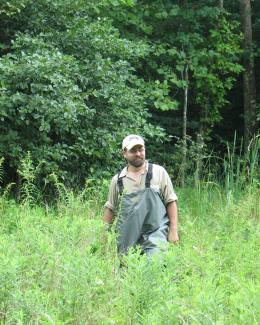Abstract
Climate feedbacks from soils can result from environmental change followed by response of plant and microbial communities, and/or associated changes in nutrient cycling. Explicit consideration of microbial life history traits and functions may be necessary to predict climate feedbacks due to changes in the physiology and community composition of microbes and their associated effect on carbon cycling. Here, we enhanced the Microbial-Enzyme-mediated Decomposition (MEND) model by incorporating microbial dormancy and the ability to track multiple isotopes of carbon. We tested two versions of MEND, i.e., MEND with dormancy and MEND without dormancy, against long-term (270 d) lab incubations of four soils with isotopically-labeled substrates. MEND without dormancy adequately fitted multiple observations (total and 14C respiration, and dissolved organic carbon), but at the cost of significantly underestimating the total microbial biomass. The MEND with dormancy improved estimates of microbial biomass by 20–71% over the MEND without dormancy. We observed large differences for two fitted model parameters, the specific maintenance and growth rates for active microbes, depending on whether dormancy was considered. Together our model extrapolations of the incubation study show that long-term soil incubations with observations in multiple carbon pools are necessary to estimate both decomposition and microbial parameters. These efforts should provide essential support to future field- and global-scale simulations and enable more confident predictions of feedbacks between environmental change and carbon cycling.





